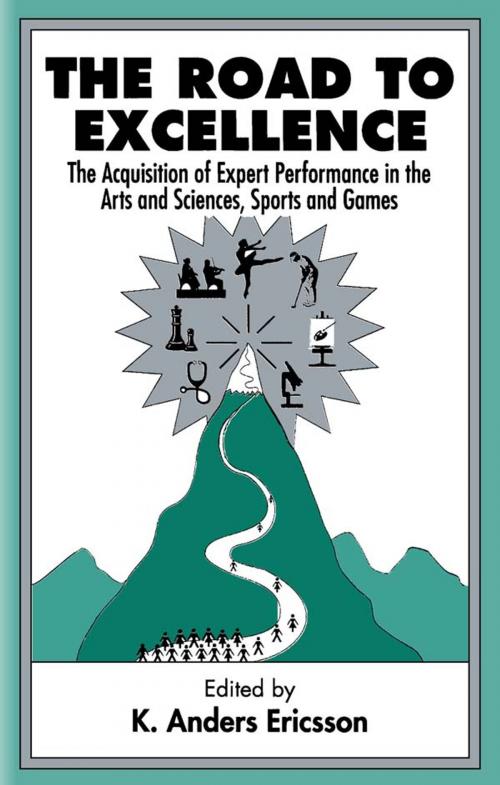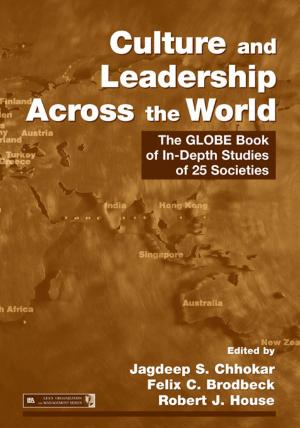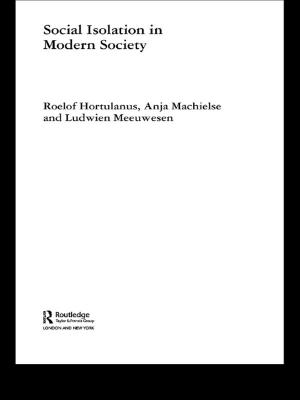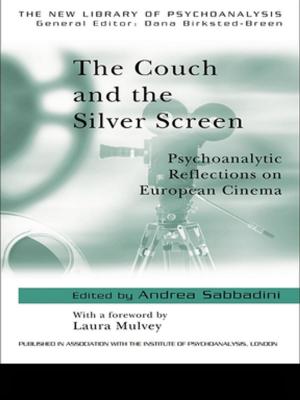The Road To Excellence
the Acquisition of Expert Performance in the Arts and Sciences, Sports, and Games
Nonfiction, Health & Well Being, Psychology, Cognitive Psychology| Author: | ISBN: | 9781317779056 | |
| Publisher: | Taylor and Francis | Publication: | March 5, 2014 |
| Imprint: | Psychology Press | Language: | English |
| Author: | |
| ISBN: | 9781317779056 |
| Publisher: | Taylor and Francis |
| Publication: | March 5, 2014 |
| Imprint: | Psychology Press |
| Language: | English |
Excellence and the highest levels of performance in the arts and sciences, sports, and games have always been an object of fascination to both scientists and lay people. Only during the last 20 years have scientists studied these levels of performance in the laboratory in order to identify their mediating mechanisms. Contrary to the common belief that innate talents are the critical factors for exceptional performance, investigators have found that acquired skills, knowledge, and physiological adaptations in response to intense practice are the primary mechanisms, mediating the highest levels of performance.
This is the first and only book to examine how elite performers effect their exceptional accomplishments. The world's leading researchers on expert performance and creative achievement review theories and recent findings from many different domains of expertise on how experts optimize improvement in their performance and eventually attain excellence. Elite performers are shown to have engaged in deliberate-practice activities specifically designed to improve their performance from an early age. By age 20 they have often accumulated over 10,000 hours of practice! The essential elements of deliberate practice, such as specific goals to improve performance, successive refinement through repetition, feedback and instruction, are explicated for different domains. Although the content of practice tasks will necessarily differ from domain to domain, investigators have found invariant characteristics for the optimal duration of practice sessions, maximal amounts of daily practice, the length of intense preparation (around 10 years), and ages of peak performance. Some of the book's chapters extend the review to the acquisition of everyday-life skills such as reading, to the performance of teams of experts, and to the development of creative achievement, geniuses, and artistic child prodigies. The book concludes with commentaries by several outstanding scientists in psychology, education, and history of science who discuss the generalizability of presented ideas and raise issues for future issues.
EXTRA COPY...It could be said that striving for excellence is what characterizes humanity, or perhaps what characterizes humanity at its best. Why do so few individuals ever reach the highest levels when so many start out on the Road to Excellence? In this book, the world's foremost researchers of expert performance in domains as diverse as sports, medicine, chess, and the arts explore the similarities and differences in the extended and strenuous Road to Excellence taken by the successful individuals in each domain. Their findings will intrigue and inspire readers who are themselves driven to achieve or who simply want to better understand the processes involved.
Excellence and the highest levels of performance in the arts and sciences, sports, and games have always been an object of fascination to both scientists and lay people. Only during the last 20 years have scientists studied these levels of performance in the laboratory in order to identify their mediating mechanisms. Contrary to the common belief that innate talents are the critical factors for exceptional performance, investigators have found that acquired skills, knowledge, and physiological adaptations in response to intense practice are the primary mechanisms, mediating the highest levels of performance.
This is the first and only book to examine how elite performers effect their exceptional accomplishments. The world's leading researchers on expert performance and creative achievement review theories and recent findings from many different domains of expertise on how experts optimize improvement in their performance and eventually attain excellence. Elite performers are shown to have engaged in deliberate-practice activities specifically designed to improve their performance from an early age. By age 20 they have often accumulated over 10,000 hours of practice! The essential elements of deliberate practice, such as specific goals to improve performance, successive refinement through repetition, feedback and instruction, are explicated for different domains. Although the content of practice tasks will necessarily differ from domain to domain, investigators have found invariant characteristics for the optimal duration of practice sessions, maximal amounts of daily practice, the length of intense preparation (around 10 years), and ages of peak performance. Some of the book's chapters extend the review to the acquisition of everyday-life skills such as reading, to the performance of teams of experts, and to the development of creative achievement, geniuses, and artistic child prodigies. The book concludes with commentaries by several outstanding scientists in psychology, education, and history of science who discuss the generalizability of presented ideas and raise issues for future issues.
EXTRA COPY...It could be said that striving for excellence is what characterizes humanity, or perhaps what characterizes humanity at its best. Why do so few individuals ever reach the highest levels when so many start out on the Road to Excellence? In this book, the world's foremost researchers of expert performance in domains as diverse as sports, medicine, chess, and the arts explore the similarities and differences in the extended and strenuous Road to Excellence taken by the successful individuals in each domain. Their findings will intrigue and inspire readers who are themselves driven to achieve or who simply want to better understand the processes involved.















